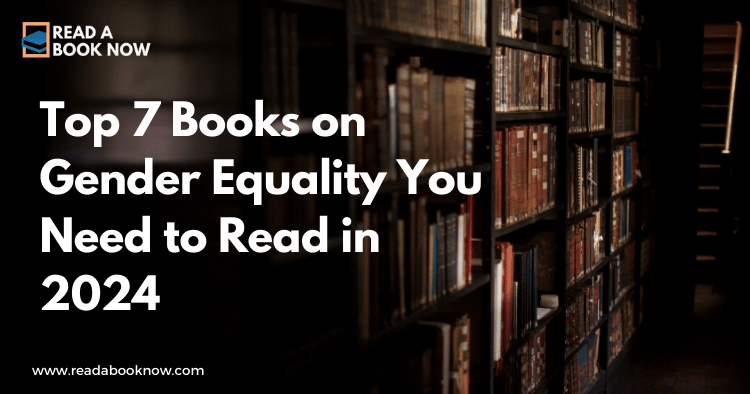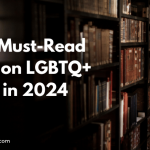Table of Contents
- Introduction
- 1. “Invisible Women: Data Bias in a World Designed for Men” by Caroline Criado Perez
- 2. “The Gendered Brain” by Gina Rippon
- 3. “We Should All Be Feminists” by Chimamanda Ngozi Adichie
- 4. “Men Explain Things to Me” by Rebecca Solnit
- 5. “Sexual Justice: Supporting Victims, Ensuring Due Process, and Resisting the Conservative Backlash” by Alexandra Brodsky
- 6. “The Second Sex” by Simone de Beauvoir
- 7. “Gender Trouble: Feminism and the Subversion of Identity” by Judith Butler
- Conclusion
- FAQs
Introduction
Gender equality remains a pivotal issue in our society, influencing everything from workplace dynamics to personal relationships. As we step into 2024, it’s crucial to equip ourselves with knowledge that fosters understanding, empathy, and action towards achieving equality for all genders. Books offer a powerful avenue to explore different perspectives and ideas surrounding gender issues. Here’s a curated list of the top seven books on gender equality that you should consider reading this year.
1. “Invisible Women: Data Bias in a World Designed for Men” by Caroline Criado Perez
Caroline Criado Perez’s groundbreaking work delves into the systemic data bias that skews our understanding of gender issues. It highlights how a world predominantly designed around male experiences neglects women, leading to dire consequences in health, safety, and economic opportunities.
Key Takeaways:
- Data Representation: The book emphasizes the importance of inclusive data collection.
- Real-World Examples: Criado Perez illustrates her points with compelling case studies, from urban planning to medical research.
Why Read It?
“Invisible Women” not only raises awareness but also empowers readers to advocate for more equitable practices in data collection and representation.
“Data is not just numbers; it tells the stories of those who are often overlooked.”
Learn more about data bias and gender issues here.
2. “The Gendered Brain” by Gina Rippon
In “The Gendered Brain,” neuroscientist Gina Rippon dismantles the myth that male and female brains are inherently different. Through comprehensive research, Rippon argues that societal expectations shape our perception of gender differences in the brain.
Key Takeaways:
- Neuroscience Insights: Understand how the brain is influenced by culture rather than biology.
- Empowerment Through Knowledge: Gain insights into how debunking myths can lead to more equitable treatment in various fields.
Why Read It?
Rippon’s work is essential for anyone curious about the intersection of science and gender, providing a refreshing perspective on how stereotypes can be challenged and changed.
“The brain is not a gendered organ; it’s a canvas painted by our experiences.”
Explore further insights into gender and neuroscience here.
3. “We Should All Be Feminists” by Chimamanda Ngozi Adichie
Chimamanda Ngozi Adichie’s essay-turned-book is a personal and powerful exploration of feminism in the 21st century. Through her engaging storytelling, Adichie urges readers to recognize the importance of gender equality for all.
Key Takeaways:
- Personal Narratives: Adichie uses her own experiences to illustrate broader societal issues.
- Universal Appeal: The book transcends cultural boundaries, resonating with a global audience.
Why Read It?
This book serves as an accessible introduction to feminist thought, perfect for readers new to the topic or those looking to rethink their understanding of gender equality.
“Feminism is about the social, political, and economic equality of the sexes.”
Check out more about modern feminism here.
4. “Men Explain Things to Me” by Rebecca Solnit
In this witty and incisive collection of essays, Rebecca Solnit explores the phenomenon of “mansplaining” and the ways in which women’s voices are often marginalized in conversations.
Key Takeaways:
- Cultural Commentary: Solnit critiques the social dynamics that allow for gender inequality.
- Empowerment Through Storytelling: She shares personal anecdotes that highlight societal absurdities.
Why Read It?
“Men Explain Things to Me” is a must-read for anyone interested in understanding the nuances of gender dynamics in conversations and society.
“To be silenced is to be disempowered; reclaim your voice.”
Discover more about gender communication here.
5. “Sexual Justice: Supporting Victims, Ensuring Due Process, and Resisting the Conservative Backlash” by Alexandra Brodsky
Brodsky’s book tackles the complexities of sexual justice, navigating the often contentious discussions surrounding consent, victim support, and institutional accountability.
Key Takeaways:
- Balanced Perspective: The book provides a nuanced view of the sexual justice movement.
- Actionable Insights: It includes practical advice for advocating for change in various settings.
Why Read It?
If you’re eager to understand the intersection of sexual consent and justice, this book is an essential resource for activists and allies alike.
“Justice is not just about punishment; it’s about restoring dignity and agency.”
Learn more about sexual justice initiatives here.
6. “The Second Sex” by Simone de Beauvoir
Simone de Beauvoir’s classic text is foundational in feminist philosophy. It explores the construction of womanhood and the societal structures that perpetuate gender inequality.
Key Takeaways:
- Philosophical Foundations: De Beauvoir’s arguments remain relevant in discussions about identity and gender today.
- Cultural Critique: The work critiques various aspects of society that contribute to the oppression of women.
Why Read It?
This seminal work encourages deep reflection on gender roles and offers a historical context that informs current feminist discourse.
“One is not born, but rather becomes, a woman.”
Explore more about feminist philosophy here.
7. “Gender Trouble: Feminism and the Subversion of Identity” by Judith Butler
Judith Butler’s “Gender Trouble” is a pivotal text that challenges conventional notions of gender and identity. Butler argues that gender is performative, suggesting that our understanding of identity is shaped by social practices rather than fixed traits.
Key Takeaways:
- Challenging Norms: Butler’s arguments encourage readers to question the binaries of gender.
- Influence on Gender Studies: This book has significantly shaped contemporary feminist and queer theory.
Why Read It?
For anyone interested in the complexities of gender identity and the frameworks that define it, Butler’s work is indispensable.
“Gender is not something we are, but something we do.”
Learn more about queer theory and its impact here.
Conclusion
These seven books offer a diverse range of perspectives on gender equality, each contributing uniquely to our understanding of the topic. Whether you’re a seasoned feminist or just beginning to explore gender issues, these reads will inspire and challenge you to think critically about the world around you. Let’s make 2024 a year of learning and action towards gender equality.
FAQs
What is gender equality?
Gender equality refers to the equal rights, responsibilities, and opportunities of individuals regardless of their gender. It involves the fair treatment of all genders in social, economic, and political realms.
Why is gender equality important?
Achieving gender equality is crucial for building a just and equitable society. It enhances economic growth, improves social cohesion, and contributes to the overall well-being of communities.
How can I promote gender equality?
You can promote gender equality by educating yourself and others, advocating for inclusive policies, supporting women-owned businesses, and actively challenging discriminatory practices in your community.
“Remember, knowledge is power. Happy reading!”




